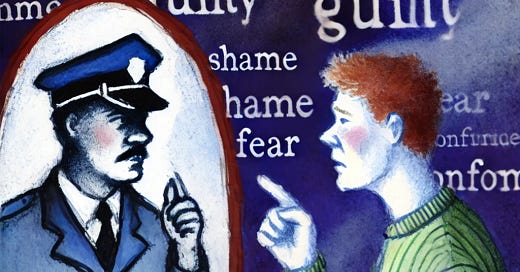When you first start waking up to the reality of the world, you realize that societies and governments play a significant role in one thing: controlling the population. This control isn’t just about maintaining order; it’s about keeping a small elite in power.
If you’re new to this, it’s a hard truth to swallow: the powers that be—an oligarchical class, if you will—represent only 1% of the population but exert control over the rest of us. How?
Not through force alone, because physical control has its limits. When people are pushed too far, they revolt.
So, they rely on a more insidious method: psychological control.
Keep reading with a 7-day free trial
Subscribe to Unorthodoxy to keep reading this post and get 7 days of free access to the full post archives.





